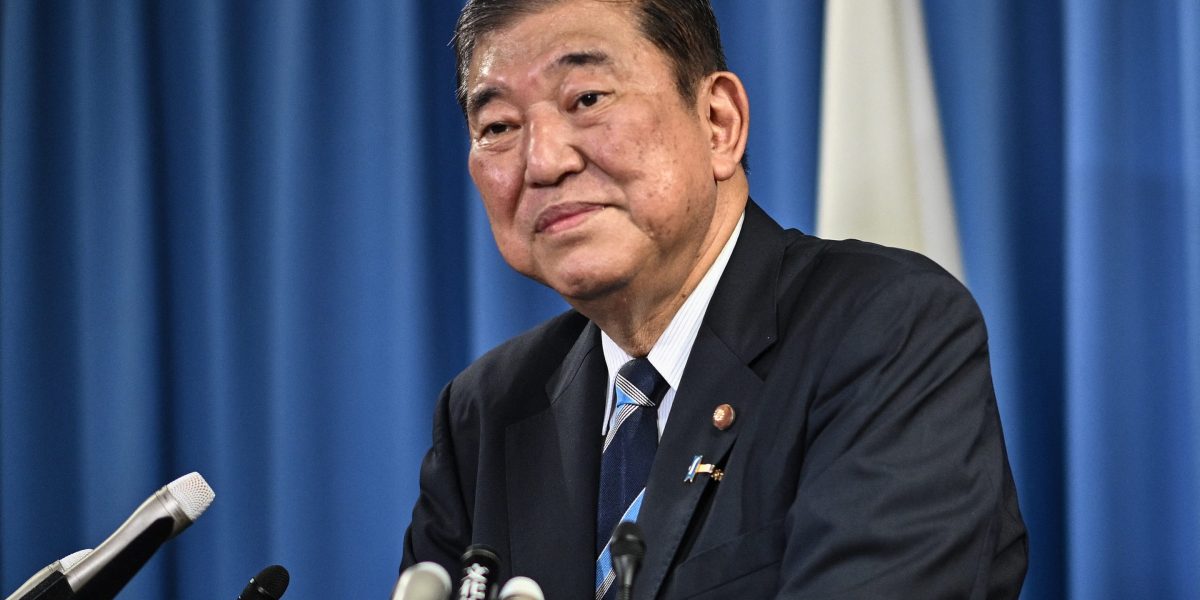Shigeru Ishiba, who became Japan’s new prime minister on Tuesday, is a former defence minister known for his in-depth security policy knowledge.
Ishiba’s push to boost the military and call for the creation of an Asian NATO could rile Beijing, but he is careful with his words concerning China.
“I will be committed to protecting Japan’s territory,” he said on Friday after the ruling party voted him leader.
“Japan wants to fulfil our proactive responsibility and start discussions about how to build peace in this region.”
Tensions are running high after incursions into Japanese airspace by China and Russia. A Japanese warship also last week sailed through the Taiwan Strait for the first time.
Although he is relatively popular with the public, Ishiba had four failed bids to lead his Liberal Democratic Party (LDP), including a 2012 try against his arch-rival Shinzo Abe, before prevailing this time against a nationalist.
For a long time Ishiba alienated party heavyweights with his “outspoken criticism of LDP policies under Abe”, said Yu Uchiyama, a politics professor at the University of Tokyo.
But recently he has been “vocal about the need for the LDP to turn over a new leaf when it comes to the funding scandal and other issues”, which may have worked in his favour.
He has also proposed creating a government agency in charge of disaster prevention in the earthquake-prone country that is also frequently hit by typhoons and heavy rains.
On Tuesday he was formally elected by parliament, where the conservative LDP holds a majority. Ishiba has said he intends to call a general election for October 27.
‘Don’t repeat mistakes’
Ishiba, whose politician father was at one point a cabinet minister, grew up in the remote rural region of Tottori.
He studied law at university and became a banker before entering politics, winning his first parliamentary seat with the LDP in 1986, aged 29.
During his long career, the father of two has held several key posts including LDP secretary general and minister for agriculture.
The political veteran is a fan of trains, 1970s pop idols and making military models.
Ishiba has pledged to boost the economy by encouraging domestic investment in the chip and AI sectors among other policies, such as using nuclear power alongside renewables to fuel the resource-poor country.
He supports the Bank of Japan’s exit from its longstanding unorthodox monetary easing policies—championed by Abe—and has said “there is room for raising the corporate tax”.
The money raised by this tax hike will help the government in its existing plan to ramp up defence spending to the NATO standard of 2% of GDP by 2027, according to Ishiba.
He aims to raise Japan’s low birth rate through measures including a review of the country’s notoriously long working hours and expanding support for parents, and wants to fight rural depopulation by revitalising regional economies.
Ishiba has said he is uniquely qualified for the job because he has experienced many setbacks when tackling tough social issues, such as agriculture reforms.
“I have always asked myself why and how things didn’t always go well. I don’t want future generations to repeat the same mistakes,” he said in a recent debate.


